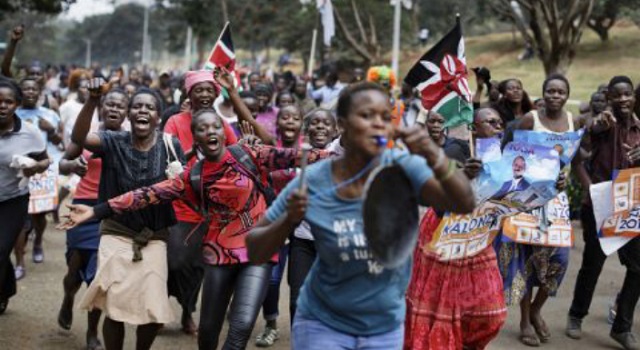
Charles Onyango-Obbo, Mukasa-Mbidde, Godfrey Kiwanda, Patrick Wakida contrast them with Uganda
Kampala, Uganda | MUBATSI ASINJA HABATI | On August 9, Kenyans went to the polls to elect their leaders at presidential, county and parliamentary levels. The top presidential candidates Raila Odinga and William Ruto hotly competed. The general elections were generally conducted in a peaceful manner and by the time we went to press, no winner had been declared in a neck-and-neck race.
Ugandans who had just concluded their own version of elections in 2021 looked at the way Kenyan elections were conducted, comparing and contrasting positions, processes, personalities, and prospects.
Many noted how the Kenyan military was absent in the campaigns and how all candidates were not harassed by security forces.
In 2021 the rest of East Africans watched as Uganda’s election was marked by state-sponsored violence, arrests, and torment of the opposition.
A number of political observers say Kenya is maturing in the way it conducts general elections. Many pointed out that is not an overnight achievement and trace the evolution from the 1980s and 90s, during Daniel Arap Moi’s regime, when members of opposition groups were harassed and jailed just like in Uganda. But then that slowed down when multiparty politics was introduced in 1992.
“Uganda can be benchmarked to Kenya of 1991,” says Mukasa Mbidde, a member of the East African Community Legislative Assembly, “Since Kenya introduced multiparty dispensation it has enjoyed growth of political parties. The growth of political parties is rights-based.”
“On the other hand, in Uganda we have political parties but we have never had a multiparty dispensation,”Mbidde says.
Writing in his Ear to the Ground column in Daily Monitor, veteran journalist Charles Onyango-Obbo said “as Kenyans went to the polls, no opposition candidate or supporters had been beaten, jailed, or killed.”
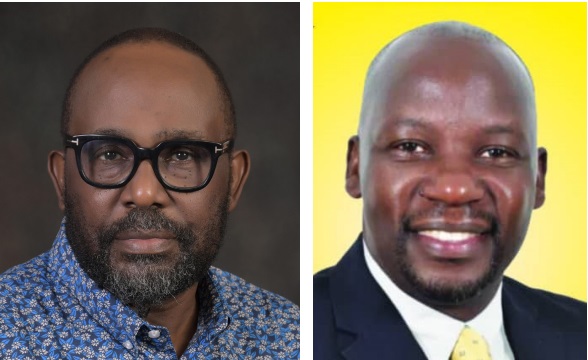
He added: “Election-related violence and repression in Uganda happen before, during, and after the election. In Kenya, it happens after.”
In 2007/2008, in the worst such violence in the country’s history, nearly 1,500 people were killed and 600,000 displaced. The elections of 2013 and 2017 were largely peaceful. In the 2022 general elections Kenyans voted for County Governors (47), Senators (47) directly elected, 16 women nominated by the political parties according to their relative strength in the Senate elections, two members to represent the youth, and two members to represent persons with disabilities), MPs (349), and Members of the County Assemblies – MCAs – (1,470).
Onyango-Obbo on the second day of the Independent Electoral and Boundaries Commission (IEBC) tallying of votes tweeted: “In Kenya elections 2022, the two leading candidates, William Ruto and Raila Odinga, spent the second night sleeping peacefully in their beds. There were no soldiers at their gates preventing them from leaving, or stopping their lawyers going in… and none of the four candidates lost a shoe, needed to wear a bullet proof vest, or carry cream to rub their eyes after being teargased.”
He was referring to the violence that tainted Uganda’s 2021 presidential elections in which the opposition candidate of the Forum for Democratic Change (FDC) was nominated without shoes after the police violently manhandled him on his way to the nomination centre.
In that election the other opposition candidate on the National Unity Platform (NUP) was forced to address campaigns wearing a bullet proof vest in fear for his life, and on several occasions the opposition presidential candidates were dispersed with teargas. The official reason was that they were not heeding election campaign guidelines issued by the police.
Ugandans on social media turned to satire by comparing what usually happens in Uganda during election campaigns, on the eve of Election Day and during the Election Day to what was not happening in Kenya. Many went on social media to sarcastically ask why Kenya had not switched off the internet just like Uganda has done in the last two elections.
Dr Patrick Wakida, a political activist and researcher says the Kenya’s electoral body appears to be independent because its establishment is different. “You can’t be independent when you are appointed by one of the candidates. In Kenya, there is a system that produces the IEBC chairperson. We haven’t reached there in Uganda,” Wakida said.
“In Uganda what makes the EC seem not in charge is the overly presence of the military in the elections,” says Wakida
Godfrey Kiwanda, the chairman of the ruling party, NRM, for Buganda, pointed at the level of transparency shown in the Kenya elections, especially regarding the 34A forms; the election results form.
“There has been transparency in uploading the declaration forms online. Anyone anywhere in the world can go to the website of Kenya’s Independent Electoral and Boundaries Commission (IEBC) and download the 34A forms. This is a good thing for it allows even poor candidates who cannot afford to put polling agents in all polling stations. This is a good lesson to learn,” said Kiwanda.
He added that another lesson is about the use of social media sites “which have not been closed down”.
“This is an illustration of maturity and responsibility,” he said, “They know that not everything we see/read from social media is true. We need to train Ugandans about this. The Kenyans have relied on technology a lot.”
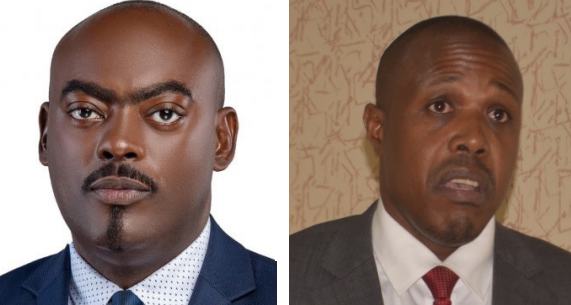 Kiwanda further says there was freedom for all presidential candidates to hold rallies. “This is a big lesson for Uganda. Let the security personnel be there to guide and man security not to participate in rallies and pulling candidates.”
Kiwanda further says there was freedom for all presidential candidates to hold rallies. “This is a big lesson for Uganda. Let the security personnel be there to guide and man security not to participate in rallies and pulling candidates.”
However, Kiwanda argues that the weakness in the Kenyans election is the lengthy time it takes to declare the winner of presidential election.
“The seven days allowance is very long and creates unnecessary anxiety which is fueled by different media houses announcing the results of their own tally. The confusion created as a result of different tallies much as there is a disclaimer that final election results are announced by the IEBC can be a spark for violence
Kenyans have demonstrated to the world that elections can be conducted with dignity, says Eliud Waweru one of the Kenyans working in Uganda.
“We are the benchmark for not only East Africa but Africa as a whole that democracy is possible. We have demonstrated maturity in elections in the recent past. That’s the way it should be. Elections pass but Kenya will remain our nation. We have learnt from our past mistakes and setting the best example for future.”
Not yet time celebrate
Onyango-Obbo notes that Kenya’s elections have been corruption-riddled, cynical, marred with irregularities, and in the past have been riven by ethnic animosity and violence.
“What sets them apart from nearly all the rest of the East African elections is that even with all those drawbacks, they have tremendous redemptive and pedagogic value.
“The playing ground in Kenya elections is fairly even. And the outcomes tell us a lot about what happens when a minimum level ground is achieved in Africa. Presidential candidates face little to no state-repressive obstacles in their quest for the top job. Secondly, there is never a far-out early favourite in Kenyan elections, and the sitting president starts out with the least incumbency advantage of any East African country.”
****
 The Independent Uganda: You get the Truth we Pay the Price
The Independent Uganda: You get the Truth we Pay the Price

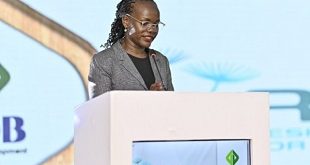
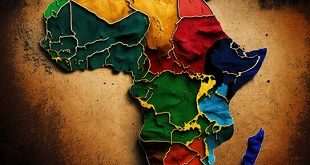

This will only be true if they announce the right winner, if not then African blood still dominates however much they try to appear American
Uganda is too far to democracy. We shall mature only if political monarchy and installation of successors (instead of glooming them) is forgotten. I wish I were Kenyan!